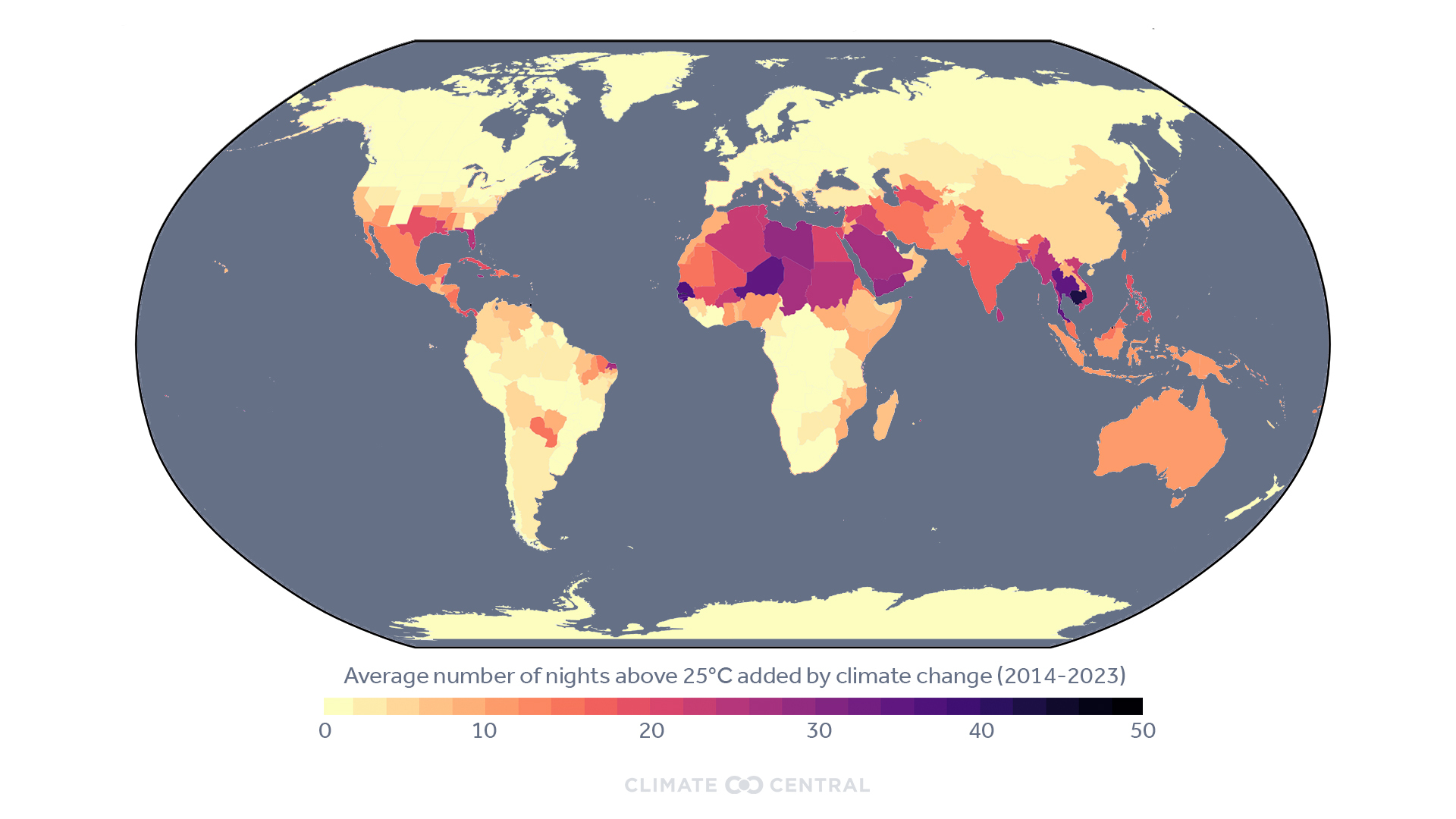Climate change is a pressing issue that continues to impact our planet in various ways. One of the lesser-known consequences of climate change is the increase in dangerously hot nighttime temperatures across the globe. A recent analysis conducted by Climate Central sheds light on this concerning trend and its implications for human health and well-being.
The purpose of the analysis was to assess the extent to which human-caused climate change has led to a rise in uncomfortably hot summer nights. By examining data from different regions, countries, and cities, the researchers aimed to quantify the increase in nighttime temperatures and its impact on populations worldwide.
To conduct the analysis, the researchers calculated the number of days where the nighttime minimum temperature exceeded certain thresholds, such as 18°C, 20°C, and 25°C. These thresholds were chosen to represent levels of nighttime heat that can be considered dangerous and detrimental to human health. Additionally, the Climate Shift Index daily attribution system was used to determine how climate change has influenced the number of uncomfortably hot nights.
The findings of the analysis are alarming. It was revealed that climate change, primarily driven by the burning of fossil fuels, has caused a significant increase in dangerously hot nights across the globe. Approximately 2.4 billion people have experienced an average of at least two additional weeks per year where nighttime temperatures exceeded 25°C. Over 1 billion people have also experienced an increase in nights above 20°C and 18°C.
The implications of these high nighttime temperatures are profound. Not only do they prevent the body from recovering from daytime heat, but they also increase the risk of illness and mortality. Furthermore, disrupted sleep due to high nighttime temperatures can have a range of negative impacts on physical and mental health, cognitive function, and life expectancy. It is clear that addressing the issue of dangerously hot nighttime temperatures is crucial for safeguarding public health and well-being.
The analysis serves as an update to a previous report by Climate Central, titled “Sleepless Nights,” which focused on the impact of climate change on nighttime temperatures in specific regions. The current report provides a more comprehensive global analysis, highlighting the widespread effects of climate change on nighttime temperatures across different parts of the world.
In conclusion, the analysis conducted by Climate Central underscores the urgent need to address the issue of dangerously hot nighttime temperatures resulting from climate change. By taking decisive action to reduce greenhouse gas emissions and mitigate the effects of climate change, we can work towards creating a safer and healthier environment for current and future generations.

